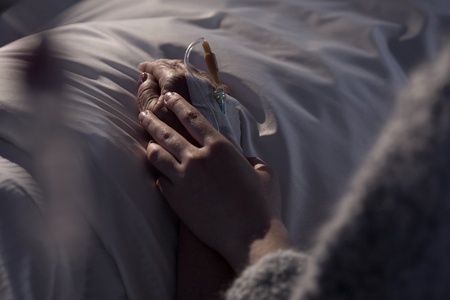Invokana Class Action

Invokana lawsuits have been filed in U.S. courts on behalf of individuals who allegedly suffered serious complications, including diabetic ketoacidosis and kidney damage, due to treatment with the Type 2 diabetes medication. Filing an Invokana class action or individual case could be an option for those who may have experienced similar harm after using this medication.
Contact an Attorney Today
The nationwide law firm of Bernstein Liebhard LLP is now investigating individual and class action involving Invokana, as well as a related medication called Invokamet. To learn more, please contact our office today by calling (888) 994-5118.
Invokana and Invokamet Side Effects
Invokana and Invokamet are SGLT2 inhibitors indicated to treat Type 2 diabetes. Invokana was brought to market in March 2013, and was first of this class to be sold in the U.S. Invokamet was approved by the U.S. Food & Drug Administration (FDA) in 2014. SGLT2 inhibitors work by preventing the absorption of glucose by the kidneys, allowing for its elimination from the body via the urine.
The FDA began investigating a possible link between SGLT2 inhibitors and diabetic ketoacidosis in 2015, after receiving numerous reports of the life-threating condition in patients taking the drugs. Diabetic ketoacidosis results from the accumulation of toxic acids called ketones in the blood stream. If not treated immediately, the condition may progress to diabetic coma and death.
The FDA completed its review in December 2015 and ordered the manufacturers of Invokana and other SGLT2 inhibitors to include information about this potential complication on their product labels. Patients taking these medications should seek immediate medical attention if they experience:
- Difficulty breathing
- Nausea
- Vomiting
- Abdominal pain
- Confusion
- Unusual fatigue or sleepiness
In June 2016, the FDA ordered stronger kidney warnings for the labels of Invokana, Invokamet and several other SGLT 2 inhibitors, after the drugs were linked to more than 100 reports of acute kidney injury. Healthcare providers were advised to assess a patient’s kidney function and to consider factors that may predispose patients to acute kidney injury prior to initiating treatment.
How Would an Invokana Class Action Work?
In the case of an Invokana class action, one plaintiff would be named the class representative and given the authority to act on behalf all other class members. Decisions left to the discretion of this individual include the choice of attorney and whether to settle the lawsuit. Any funds recovered as part of a class action settlement would be shared equally among class members. However, the class representative would receive a larger payment in return for their more extensive role in the case.
Class action lawsuits are an ideal vehicle for large groups of plaintiffs who have experienced near-identical damages due to the same product. If the case is resolved in plaintiffs’ favor, compensation may include refunds or rebates to reimburse consumers for purchasing the product. If a class action involves injuries illness related to the use of the product, the settlement may also include funds to set up a health monitoring program for those who have not yet become sick but face a risk of illness in the future.
Hundreds of plaintiffs are now pursuing Invokana and Invokamet lawsuits, many of which have been consolidated in a multidistrict litigation now underway in U.S. District Court, District of New Jersey. Most plaintiffs have opted to file individual lawsuits, rather than class action complaints. Though they are undergoing coordinated pretrial proceedings, each of the individual claims retains its own identity and will be decided on its merits. Any judgment or settlement awarded in an individual Invokana lawsuit would be tailored to a plaintiff’s specific injuries and damages.
Contact an Attorney to Learn More About Your Legal Options
The attorneys at Bernstein Liebhard LLP are offering free legal reviews to individuals who may have been harmed by Invokana or Invokamet. Please call (888) 994-5118 to discuss your case with a member of our legal team today.
- FDA (2015) “FDA Drug Safety Communication: FDA warns that SGLT2 inhibitors for diabetes may result in a serious condition of too much acid in the blood” http://www.fda.gov/Drugs/DrugSafety/ucm446845.htm
- FDA (2015) “FDA Drug Safety Communication: FDA revises labels of SGLT2 inhibitors for diabetes to include warnings about too much acid in the blood and serious urinary tract infections” http://www.fda.gov/Drugs/DrugSafety/ucm475463.htm
- FDA (2016) “FDA Drug Safety Communication: FDA strengthens kidney warnings for diabetes medicines canagliflozin (Invokana, Invokamet) and dapagliflozin (Farxiga, Xigduo XR)” https://www.fda.gov/Drugs/DrugSafety/ucm505860.htm
Get the latest news and litigation updates about this case by following us on Facebook. Click the "Like" button below.
Follow Us


